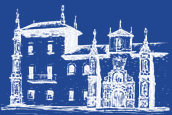Abstract
This article explores many of the ways in which performance of a modern Basque pastorale, or morality play—an art form with medieval roots—explores issues and conundrums of contemporary Basque society and culture. These include maintenance of the Basque language and identity, the attitude of Basques towards others, notably Spaniards and gypsies, and vice versa, and the survival of Basque rural life in the face of the many challenges to it. Karmen Etxalarkoa Pastorala is but the most recent recounting of the tragedy of Carmen, the quintessential gypsy of Prosper Merimée’s novel and Bizet’s opera. In the work, she claims descent from the Navarrese village of Etxalar, and her ill-fated lover, José Lizarrabengoa, is from the adjacent Valley of Baztan. I interweave my own mid-twentieth-century anthropological research in Etxalar with the biographies of local residents and that of the pastorale’s author, Gerardo Mungia, as a ploy for narrating the genesis and significance of Karmen Etxalarkoa Pastorala, not to mention its many ironies.
DOI
10.18122/boga/vol8/iss1/1/boisestate
Recommended Citation
Douglass, William A.
(2020)
"The Canonization of Carmen: Reflections on a Basque Pastorale,"
BOGA: Basque Studies Consortium Journal: Vol. 8
:
Iss.
1
, Article 1.
10.18122/boga/vol8/iss1/1/boisestate
Available at:
https://scholarworks.boisestate.edu/boga/vol8/iss1/1

About the Author
William A. Douglass, world-renowned scholar of Basque studies and the founder of the Basque Studies Program (now Center for Basque Studies at the University of Nevada, Reno). A pioneer in Basque Studies his publications are in the hundreds with articles, conference presentations, edited volumes and monographs starting with his doctoral research in the Basque Country that yielded Death in Murelaga: Funerary Ritual in a Spanish Basque Village (1969). He is coauthor (with Jon Bilbao) of Amerikanuak. Basques in the New World (1975), the iconic work in the foundation of Basque Diaspora Studies. Retiring as coordinator of the program after 33 years, he nevertheless continues researching and writing, producing Global Vasconia in 2004. Recipient of numerous awards, including “Leading Researcher” and “Best Professor” at the University of Nevada, Reno, and the prestigious “Lagun Onari” by the Basque Government.
Education:
Ph.D. Social Anthropology, University of Chicago